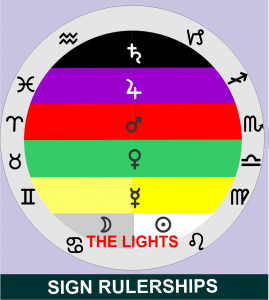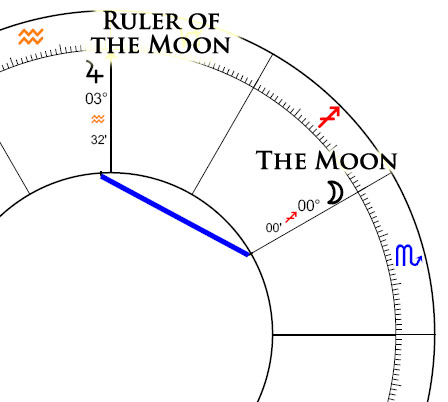JUPITERASC
Well-known member
- Joined
- Jan 16, 2008
- Messages
- 108,238
SPECIFICALLY TRADITIONAL ASTROLOGYIn astrology,
i.e.the concept of rulership refers to the relationship between planets and zodiac signs. Each of the 7 classical planets—Sun, Moon, Mercury, Venus, Mars, Jupiter, and Saturn—rules over a specific sign or signs, influencing the characteristics and energies of those signs. For instance, the Sun rules Leo, imparting vitality, creativity, and leadership qualities, while the Moon rules Cancer, fostering emotional sensitivity and intuition. These planetary rulers help define the core traits of the zodiac signs they govern.
TRADITIONAL ASTROLOGY - Vettius Valens THE ANTHOLOGY
CANCER
The zodiac completes a sidereal cycle in 23.93446 hours.
The twelvefold circle has no beginning, but it is so-held to begin with Cancer.
The image of the Crab is feminine, nocturnal
Depending on the placement of the houseruler
those born under the influence of Cancer
are travelling and wandering
because the Crab and the Moon do not walk straight
getting involved in the many activities
saying one thing, but thinking another,
Domicile of Moon, exaltation of Jupiter, depression of Mars
LEO
The image of the Lion is masculine, diurnal
It indicates action, reputation, superiors, harsh matters and quarrels.
Depending on the placement of the houseruler
those born under the influence of Leo
are distinguished, independent, reliable
haters of evil, beneficent and inflated with lofty thoughts.
Domicile of Sun
TRADITIONAL ASTROLOGY RULERSHIPS ILLUSTRATEDThis system of rulership highlights the connection between the cosmos and human behavior. The planets, through their ruling signs, shape our personalities, tendencies, and reactions. For example, Mercury, ruling Gemini and Virgo, is associated with communication, intellect, and analytical thinking, guiding how individuals under these signs process information and interact with the world. Understanding these rulerships allows astrologers to gain deeper insights into a person’s astrological profile, revealing the underlying influences at play in their life.
Last edited:









